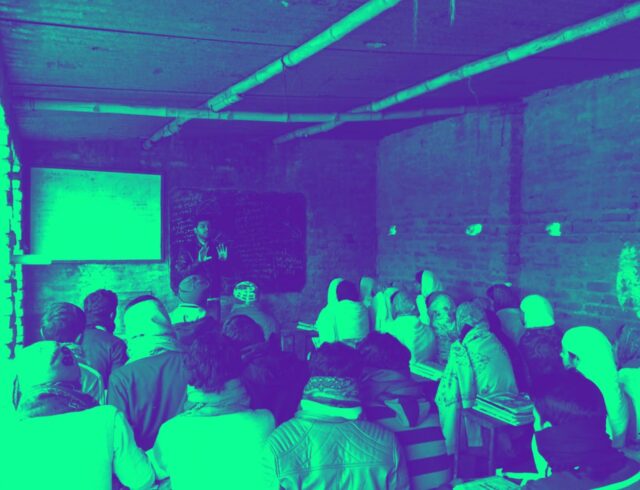According to the Stanford Encyclopedia of Philosophy, “rights structure the form of governments, the content of laws, and the shape of morality as it is currently perceived.” In other words, Right is a claim protected by Law. The concept of democracy is also based on rights, freedom, liberty, and equality.
As we know, democracy means to the people, for the people, by the people. It is a form of government in which the people of the country hold sovereign power. People have the right to choose their representatives to form the government and they are accountable towards them. In this process, both enjoy their political rights.
Moving forward, we have to understand mainly three rights: Natural Rights, Democratic Rights, and Fundamental Rights.
(a) Natural Rights- It is a broad political theory which talks about the basic rights that include the right to life, liberty, and pursuit of happiness that the government cannot deny.
(b) Democratic Rights- the UDHR is a list of rights, declared by the United Nations in 1948. The list includes:
- All human beings are born free and equal in dignity and rights.
- Everyone has the right to life, liberty, and security of a person.
- No one shall be subjected to torture or to cruel, inhuman or degrading treatment or punishment.
- All are equal before the law.
- No one shall be subjected to arbitrary arrest, detention or exile.
- Everyone charged with an offense against the law has the right to be presumed innocent until proven guilty.
- Everyone has the right to freedom of thought, conscience, and religion.
- Everyone has the right to freedom of opinion and expression.
- Everyone has the right to vote. The will of the people shall be expressed in periodic and genuine elections, which will be by universal and equal suffrage.
- Everyone has the right to education.
(c) Fundamental Rights- It is in itself a wide subject written in Part III, Article 12 to 35A of the Constitution of India. But it has been divided into six parts to understand it easily.
- Right to Equality- Basically it means everyone is equal in the eyes of law. The right to Equality guarantees equal rights to all citizens and prohibits inequality on the basis of caste, religion, place of birth, race or gender. It ensures equality of opportunity in matters of public employment and prevents the State from discriminating against anyone in matters of employment on the grounds only of religion, race, caste, sex, descent, place of birth, place of residence or any of them.
- Right to Freedom- It provides us with various rights like freedom of speech, freedom of expression, freedom of assembly without arms, freedom of movement throughout the territory of our country, freedom of association, freedom to practice any profession, freedom to reside in any part of the country. Though, these rights have their own restrictions.
- Right against Exploitation- Right against Exploitation denounce human trafficking, child labour, forced labor making it an offense punishable by law, and also prohibits any act of compelling a person to work without wages where he was legally entitled not to work or to receive remuneration for it.
- Right to Freedom of Religion- It guarantees religious freedom and ensures secular states in India. The Constitution says that the States should treat all religions equally and impartially and that no state has an official religion. It also guarantees all people the freedom of conscience and the right to preach, practice and propagate any religion of their choice.
- Cultural and Educational Rights- It protects the rights of cultural, religious and linguistic minorities by enabling them to conserve their heritage and protecting them against discrimination. Educational rights ensure education for everyone irrespective of their caste, gender, religion, etc.
- Right to Constitutional Remedies- “Ubi jus ibi remedium” where there is a right there is a remedy. Right to Constitutional Remedies guarantees citizens to go to the Supreme Court under Article 32 and High Court under Article 226 of the Constitution of India to ask for enforcement or protection against violation of their fundamental rights. The Supreme Court has the jurisdiction to enforce the Fundamental Rights even against private bodies, and in case of any violation, award compensation as well to the affected individual.
We, Association for Parivartan of Nation, a non-profit society have started a campaign called “Know Your Rights” in which we visit different schools, institutions and Chaupals for extensive lectures. We have also conducted round table dialogues and discussions for the same.
Our main objective for this campaign is to reach out to those people who don’t know their basic rights and to wipe out their fear of government officials and bureaucracy because as we know, the law enforcement departments and other government officials are working to serve the nation and to maintain the law order for a decent society.
Our Causes
Project 21A
Child-Centric Strategic litigation is a powerful tool for legal and social change.

Legal Assistance
Welcome to the Association for Parivartan of Nation’s Legal Assistance page, click here.

KNOW YOUR RIGHTS
We've started a campaign “Know Your Rights” in which we visit different institutions for lecture

Child Sponsorship
Children are the world’s most valuable resource and our best hope for the future of our nation.





